Technology meets tradition: How smart health is trying to deal with diabetes
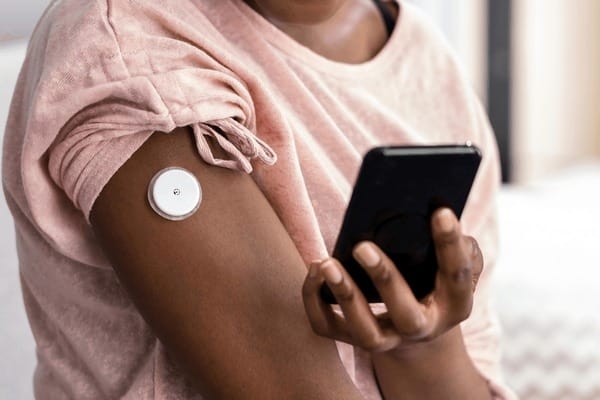 Living a healthy smart life
Living a healthy smart life
In 2022, when 28-year-old Nana Akua Boateng was diagnosed with diabetes, she thought her world had come to an end.
“I cried for days,” she said. “I thought diabetes was for old people.”
Two years down the road, that smartphone became her lifeline.
Every morning, the buzzing of the smartwatch on her wrist would remind her to check her glucose level.
And then there is the health app, mapping her meals, her sugar readings, showing spikes in blood level, all the while.
“It’s like carrying my doctor everywhere,” she said with a smile.
Meanwhile, the quiet revolution across Ghana is one neither driven nor discovered by hospitals but through phones, apps, and digital communities.
According to the Ghana Health Service, over 800,000 Ghanaians are living with diabetes, and those numbers continue to climb.
But unlike their parents, many young Ghanaians are fighting back with the help of technology.
MySugr, Glucose Buddy, and Diabetes: M health apps abound in Accra, Kumasi, and Takoradi.
Others join WhatsApp groups where nutritionists share diet tips and daily exercise challenges.
“When I forget to eat or take my medicine, my app reminds me,” Nana Akua said.
“It even tells me when to drink water or go for a walk.”
In many towns, however, faith in herbal medicine remains strong.
Fifty-five-year-old farmer Kwaku Duah still believes his bottle of brown herbal mixture “cures everything.”
“This is from the bush,” he said proudly. “It worked for my uncle.”
Doctors caution against such unregulated cocktails, as they could damage the liver and kidneys.
According to Dr. Afua Agyeman, a consultant at the Korle Bu Teaching Hospital in Accra, "Many patients turn to herbal cures or faith healing and return to us only when the damage is already done."
The conflict between traditional belief and modern science shows Ghana's double-edged struggle: preservation of culture with the embrace of innovation.
Local entrepreneurs are bridging that gap.
Yaw Obeng, founder of DiaTrack Africa created an app through which "you can record your sugar levels, order medication and actually speak to pharmacists in real time".
"My father died because he lived far from a hospital," Yaw said. "I built this so no one else would have to."
His application is now for over 10,000 users across Ghana and features voice instructions in Twi and Ga for users who cannot read English.
"We designed it for the ordinary Ghanaian, not just those in cities," he added.
Other initiatives like mClinic and mPharma by the government also connect patients with doctors via mobile phones, affording rural residents access to urban care without necessarily having to travel long distances.
Experts believe these digital tools remake the way Ghanaians perceive health.
"Technology should not replace doctors, but it can help patients monitor themselves and stay accountable," said Dr. Agyeman.
Social media has also broken long-held taboos.
Online, on Instagram and TikTok, young people living with diabetes share their experiences and meal plans under hashtags #HealthyGhana #SugarAwareness.
These tools translate into a reason for Nana Akua to have hope.
Herself, her sugar levels have stabilised, and she has joined a virtual support group that meets each weekend on Zoom.
“We share our struggles, pray together and encourage one another,” she said.
“We live far apart, but we share one goal — to stay alive.”
From the farmer clinging to herbs to the digital native tracking calories on his phone, Ghana represents a teetering scale between tradition and technology.
Medicine alone will not conquer the future of diabetes care; it will be innovation, awareness, and courage to change.
As Nana Akua said, tugging on her smartwatch, “Diabetes may have no cure, but with the right tools, we can still live fully."
By: Nana Ama Asantewaa Kwarko
Source: Classfmonline.com
Trending Features
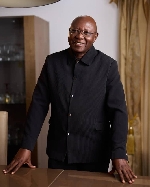
The death of patriotism and the rise of perfidy
14:24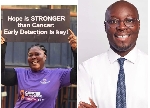
Compassion in action: How Dr Cassiel Ato Forson became an unseen hero in Ramatu Sumani’s battle with cancer
15:37
Struggling in poverty: Widows confronted with elephantiasis in Talensi
10:32
KGL makes millions for sustainability of NLA, and uses its profits to support national development
09:17
Does Ghana want to litigate her way to development?
08:29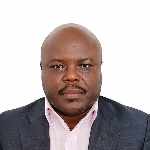
Gold, poison and kidneys: A true story Ghana must hear
12:24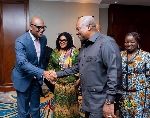
President Mahama’s China diplomacy powers Ghana’s 24-hour economy and green transformation
12:53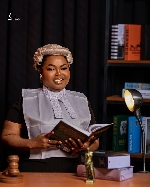
How to survive Law School: My honest reflections
13:14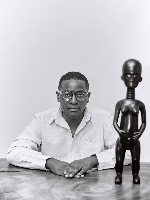
Why V. L. K. Djokoto could be Ghana’s future
17:37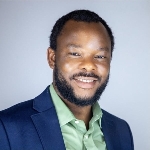
Fighting a silent killer: How vitamin C could transform triple-negative breast cancer outcomes for young African women
15:38




